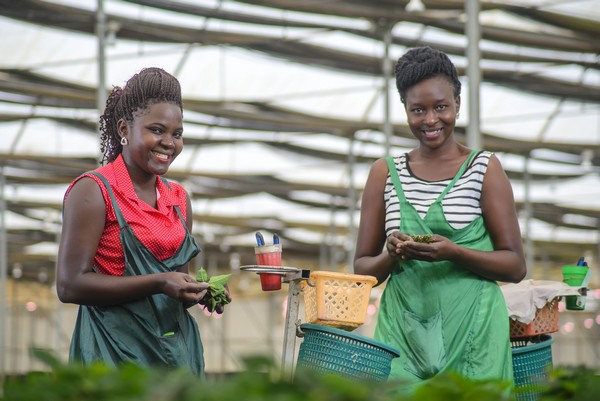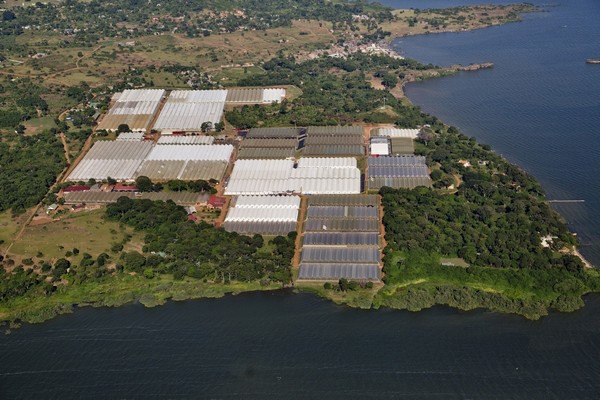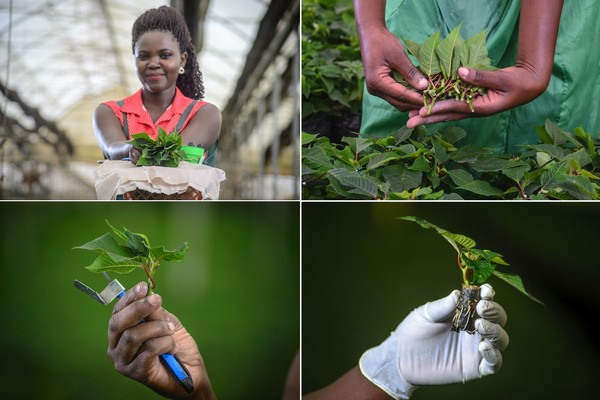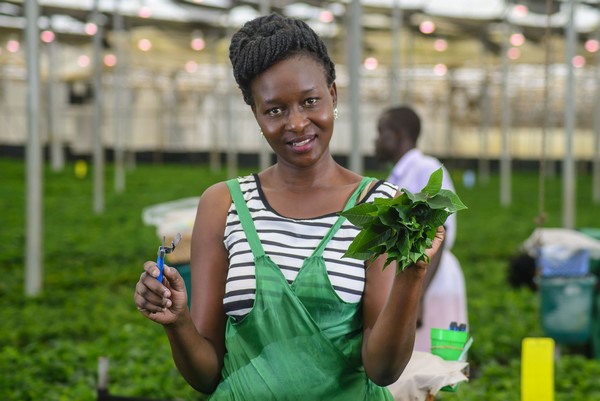After a year of COVID, the Ugandan horticulture is recovering from the pandemic. Olav Boenders, part-owner of cutting farm Wagagai in Uganda, says the demand for their plant-cuttings has increased to their maximum production ability. Additionally, despite the challenges posed by the pandemic, many lessons have been learned as well, showing that the pandemic has actually had several positive influences on their company.

(All photos by Andrew Kartende)
Lockdown - a challenging time
On April 1 2020, Uganda went into complete lockdown, which meant a curfew and no pedestrian movement. For Wagagai, this meant improvisation as well. "Our 36 ha greenhouse employs 2,300 people, 98% of whom live within a radius of 5 km and walk to the farm every day. Not having workers at our farm, even though it was low season, was not an option as plants simply always need attention and care. Therefore, we decided to let 500 workers stay over at the farm, supply them will all necessities and take temperature checks twice a day, and we made sure to obey all rules regarding sanitation and social distancing," Boenders adds. Click here to read more on last year's lockdown at the farm.
Video recapping 2020. "A year to remember"
Increased demand because of COVID
It was a challenging time, but fortunately, the COVID cases at the farm were minimal and they managed to keep going. “We are very fortunate to be doing so well in the horticultural business, compared to many other areas of business, like tourism, for example," Boenders says. Throughout the previous year, Wagagai was able to continue production, maintain all employees and continue to pay their wages. “Despite having lost some of our cuttings and therefore our profits of last year, we really cannot complain. Not only were we in our low season, meaning that we kept our loss of the previous year at a minimum, our current demand has increased majorly."

Increased productivity and better salaries
Because of the current situation they have noticed that their employees are extremely grateful to have a job during these uncertain times. “This actually led to more efficiency, as the employees worked harder. With a 10% decline in employees, which is the normal resignation rate, we luckily did not have to fire anyone, we were still able to produce the usual amount of cuttings," Boenders explains. Because of the increased productivity, Wagagai was able to provide higher salaries even during 2020. In addition, they are currently under Union negotiations for an improved CBA, with a further salary rise.
 Poinsettia cuttings
Poinsettia cuttings
Lessons learned from COVID
They have also learned some valuable lessons from the COVID-19 period and the lockdowns. For example, the amount of traveling that the owners did between Uganda and their home countries in Europa can be severely reduced. "I used to travel back and forth between the Netherlands and Uganda about eight to ten times a year. When traveling was not a possibility anymore, we found that the local management team did an incredible job at keeping the company running and a lot of meetings can be done online. Therefore, our goal is now to reduce our travels to about three to four times a year, so we can work in a more environmentally friendly and cost-efficient manner, while also handing over even more responsibilities to the local management. This has always been a key goal anyway of the owners of Wagagai, COVID has simply helped to speed up this transition. Hence our slogan : Wagagai, The place to grow together."

Fair wages and sustainability in the future
An aspect of the pandemic that has been, and still is, particularly challenging for the company is the sudden rise of the prices of raw materials. "For example, coco peat from India has become 50% more expensive due to transportation issues and availability of raw material. It is not usual to have costs rise so much so quickly." Of course, the company hopes this is a temporary increase, but the increased costs do lead to an increased price. "Fortunately, because of the pandemic, consumers are more interested in plants and willing to pay more for them, but I hope consumers remain willing to pay more in the future.” And he hopes that’s possible. “Consumers want products that are produced in a fair manner and our industry needs to educate them that a slight increase in price for the end product is necessary. In this way, we can work on providing even more fair wages and more sustainability in the long term," Boenders adds.
He is hoping that the worldwide COVID crisis will teach us all that things have to be done different, this includes looking at innovative ways how we can include the extra costs for fair wages and complete sustainability in the sales price. "The key here is to show that the extra costs to achieve this are relatively small and that we are not talking about very large increases. So, let’s use this crisis to find new ways of doing business that are more inclusive of the critical factor fair wages and sustainability, if the whole Industry embraces that, it must be possible."
For more information:
Wagagai
Olav Boenders
Email: olav@wagagai.com
www.wagagai.com
